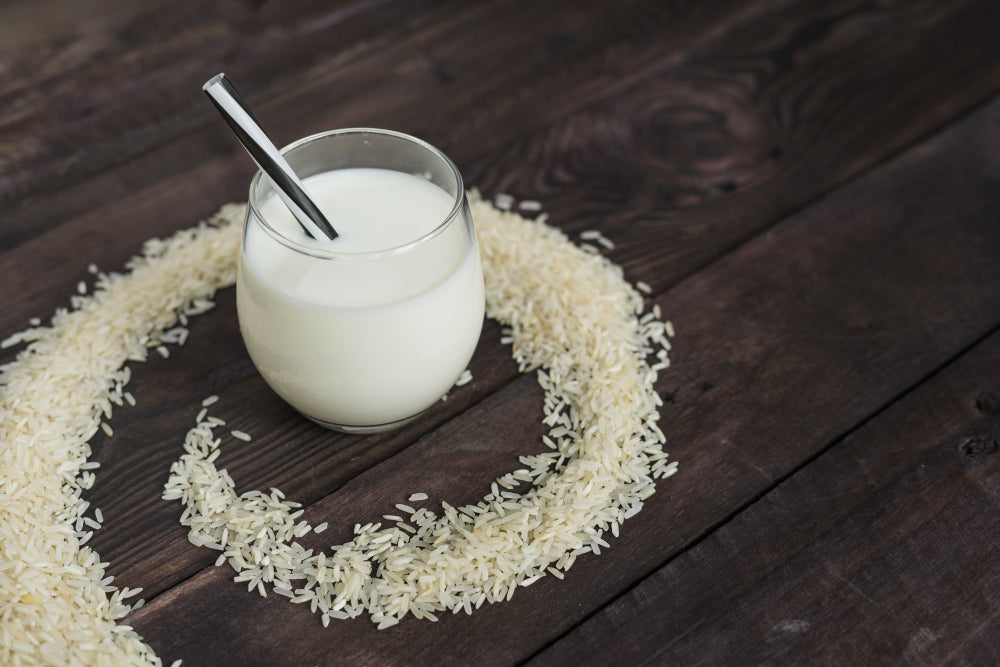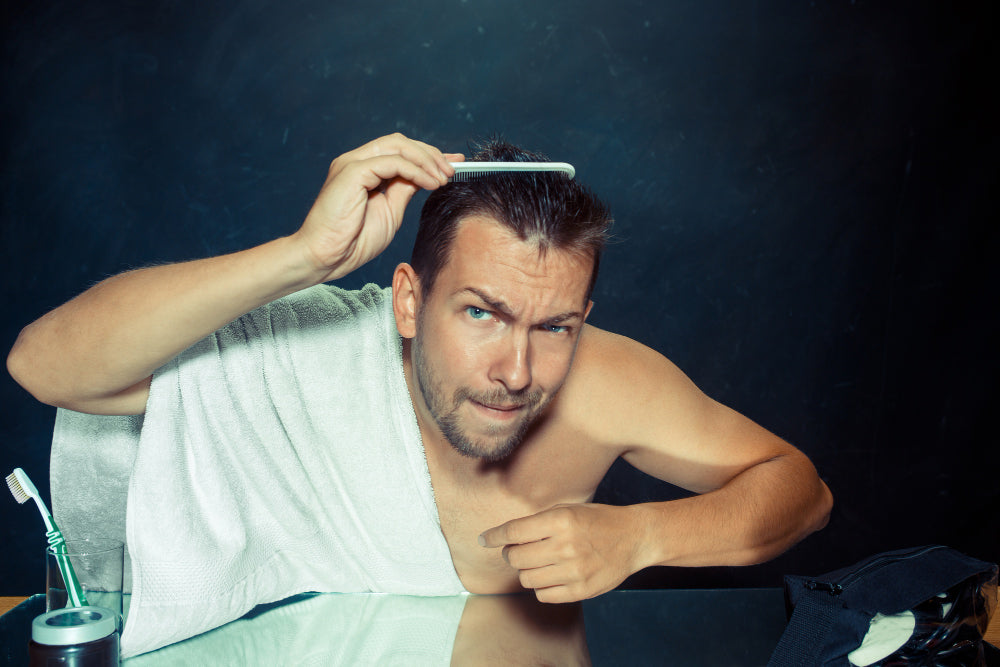Fermented Rice Water for Hair Care

Struggling with hair loss, dullness, or breakage? Many products promise results but leave hair damaged.
Fermented rice water is a natural remedy packed with nutrients to strengthen, grow, and add shine to your hair. But without proper use, it can cause buildup and irritation.
Learn how to use it effectively for the best results!
Step-by-Step Guide for Using Fermented Rice Water
Step 1. Choosing the Right Rice for Fermented Rice Water
-
Organic rice is preferred to avoid pesticides and chemicals.
-
White, brown, jasmine, or basmati rice all work, but each has different nutrient levels.
Step 2. How to Prepare Fermented Rice Water

Ingredients:
-
½ cup rice (organic preferred for purity)
-
2–3 cups filtered or distilled water
Steps:
- Rinse rice thoroughly to remove dirt and excess starch.
- Soak rice in water for 30 minutes, stirring occasionally.
- Strain and collect the rice water in a clean glass jar or bowl.
- Cover loosely and let it sit at room temperature for 24-48 hours to ferment.
- Once it develops a slightly sour smell, refrigerate it to slow further fermentation.
- Use within a week for maximum potency.
Optional: Add a few drops of rosemary, peppermint, or lavender essential oil to enhance benefits and fragrance.
Step 3. Different Ways to Use Fermented Rice Water
As a Hair Rinse (For Shine & Strength)
-
Use after shampooing by pouring it over your hair.
-
Let it sit for 5-10 minutes before rinsing with plain water.
-
Helps reduce frizz, improve elasticity, and strengthen strands.
As a Hair Mask (For Deep Conditioning)
-
Mix rice water with aloe vera, honey, or essential oils.
-
Apply to hair and leave for 15-20 minutes before rinsing.
-
Provides intense hydration and scalp nourishment.
As a Leave-In Spray (For Daily Hydration & Protection)
-
Store in a spray bottle and mist onto hair before styling.
-
Helps reduce dryness, tame frizz, and protect against damage.
As a Scalp Treatment (For Hair Growth & Scalp Health)
-
Massage into the scalp for 5-10 minutes before rinsing.
-
Stimulates circulation, strengthens roots, and reduces dandruff.
As a Pre-Wash Treatment (For Strength & Protection)
-
Apply rice water to dry hair 30 minutes before washing.
-
Strengthens hair strands, preventing breakage and split ends.
Key Benefits of Fermented Rice Water
✅ Boosts Hair Growth – Contains amino acids, inositol, and vitamins that nourish and repair hair follicles.
✅ Reduces Hair Breakage – Fermentation enhances the bioavailability of nutrients, strengthening hair structure.
✅ Adds Shine & Softness – Smooths the hair cuticle, increasing natural shine and softness.
✅ Improves Scalp Health – Antifungal and antimicrobial properties combat dandruff, irritation, and itchiness.
✅ Detangles & Reduces Frizz – Provides a natural slip, making combing easier.
✅ Balances Scalp pH – Helps regulate oil production and supports overall hair health.
Potential Side Effects & How to Avoid Them
⚠️ Protein Overload – Using too often can make hair stiff, dry, and brittle, especially for low-porosity hair.
💡 Solution: Start with once a week and adjust as needed.
⚠️ Scalp Irritation – Fermented rice water increases acidity, which may cause sensitivity.
💡 Solution: Always dilute with water before applying.
⚠️ Unpleasant Smell – Improper storage can cause a strong, sour odor.
💡 Solution: Add essential oils like rosemary or lavender.
⚠️ Build-Up on Hair – If not rinsed properly, residue can accumulate, making hair greasy and heavy.
💡 Solution: Rinse thoroughly with warm water and use a clarifying shampoo occasionally.
⚠️ Over-Fermentation Risks – Leaving rice water to ferment too long can make it too strong and acidic.
💡 Solution: Stick to 24-48 hours of fermentation and store in the fridge.
Using Fermented Rice Water to Reduce Hair Loss
🔹 Strengthens roots, reducing excessive shedding.
🔹 Nourishes the scalp, improving circulation and hair growth.
🔹 Reduces oxidative stress, preventing premature hair thinning.
🔹 Helps repair damaged hair, restoring elasticity and preventing split ends.
🔹 Works best when combined with a balanced diet and proper hydration.
Frequently Asked Questions
🔹 Can I leave fermented rice water in my hair overnight?
Not recommended, as it can lead to protein overload and dryness. A few minutes to an hour is sufficient.
🔹 How often should I use it?
Once or twice a week to prevent build-up and maintain balance.
🔹 Does it work for all hair types?
Yes, but low-porosity hair should use it sparingly, as it may not absorb nutrients efficiently.
🔹 Can I mix it with other ingredients?
Absolutely! Aloe vera, honey, hibiscus, and essential oils enhance its benefits.
🔹 What if it smells bad?
Add essential oils like rosemary or lavender, or dilute with fresh water to reduce odor.
🔹 Can I use it on chemically treated or dyed hair?
Yes, but always do a patch test first, as it may affect hair porosity differently.
🔹 Should I shampoo before or after using rice water?
Use rice water after shampooing for best absorption and follow with a light conditioner if needed.
Pro Tips for Best Results
💡 Use freshly fermented rice water – Older rice water may lose effectiveness.
💡 Avoid daily use – Too much protein can damage hair over time.
💡 Pair with a healthy diet – Nutrient-rich food enhances hair growth.
💡 Store in the fridge – Keeps it fresh and prevents over-fermentation.
💡 Do a patch test first – To check for any allergic reactions or irritation.
Conclusion
Fermented rice water is a simple yet effective natural remedy for healthier, stronger, and shinier hair. By using it correctly and adjusting its application based on hair type, you can maximize its benefits while avoiding potential downsides. Try incorporating it into your routine and experience the difference!
Happy Hair Care!

Reviewed By
Dr. Sapna Kangotra
Senior Ayurveda Doctor




Comments